Oppenheimer is a creative tour de force that sparks a necessary debate about today’s nuclear weapons. U.S. media still defends the false justification for a nuclear attack on Japan and the “first strike” underpinnings of U.S. policy. Peter Kuznick in discussion with Paul Jay.
The Roots of American Fascism and the Domestic Objectives of the Cold War – Peter Kuznick pt 2
Paul Jay
Hi, welcome to theAnalysis.news. I’m Paul Jay. Over the weekend, I saw Christopher Nolan’s film Oppenheimer.
EXCERPT
This is a national emergency. Ten meters charged.
We are in a race against the Nazis, and I know what it means if the Nazis have a bomb.
Another 12-month head start.
Eighteen.
How could you possibly know that?
We’ve got one hope.
All of America’s industrial might and scientific innovation are connected here—the secret laboratory. Keep everyone there until it is done.
You’re the man who gave them the power to destroy themselves, and the world is not prepared.
8…7… 6… 5 … 4 … 3 …
Truman needs to know what’s next.
What’s next?
2 … 1!
Paul Jay
While it is a fantastic piece of filmmaking, I encourage everybody to see it, and I applaud everything it does to help encourage a rational and deeper discussion. I shouldn’t even say deeper because there’s practically no discussion going on about American and other nuclear weapons policies and nuclear war policy. Still, there are some serious issues that need to be discussed about the film.
Now joining me to do that is someone who’s been studying the issues of nuclear war, nuclear weapons, American-Japanese relations, and World War II for decades. Now joining me is Peter Kuznick. He’s a professor of history and director of the Nuclear Studies Institute at American University. Peter is the co-author with Oliver Stone of the Showtime series, The Untold History of the United States. As I said, Peter has been studying nuclear weapons for a long time. His latest book is The Untold Postwar History of the United States and Japan, co-authored again with Oliver Stone and former Japanese Prime Minister Yukio Hatoyama. I hope I pronounced that correctly. Thanks for joining me, Peter.
Peter Kuznick
Nice to be with you, Paul.
Paul Jay
The film is based on the book American Prometheus, and it’s written by Kai Bird and Martin Sherwin. Peter knew Marty, who passed away not too long ago and is a friend of Kai Bird. I should also say that I’m making a film now based on Daniel Ellsberg’s book Doomsday Machine: Confessions of a Nuclear War Planner. Our film is called How to Stop a Nuclear War. Both Peter and I knew Dan quite well. Of course, Peter knew Dan for years.
So Peter, what’s your impression of the film?
Peter Kuznick
It’s a very complex film. It’s a three-hour biopic that really offers more information about nuclear history and American politics from the 1940s, actually even before that, the 1930s and 1920s, than almost any other movie I can think of. So it’s a very dense film. A lot of the tension is paid to certain things. One is the Trinity test.
On July 16, 1945, when Oppenheimer and the scientists in Los Alamos did the atomic bomb test of the plutonium bomb in Alamogordo New Mexico. There’s a lot about the build-up to that.
Excerpt
This is a matter of life and death.
I can perform this miracle.
World War 2 would be over, and our boys can come home.
It’s happening, isn’t it?
The world will remember this day,
Our work here will ensure a peace mankind has never seen.
Until somebody builds a bigger bomb.
Peter Kuznick
That’s developed very thoroughly. Then there’s a lot afterwards about the 1954 Army Security Hearings in which Oppenheimer loses his security clearance. It’s a little bit later about the 1959 hearings in which Lewis Strauss, who is Oppenheimer’s main antagonist in this film, he’s up to be Secretary of Commerce. He gets rejected by the Senate largely because of the scientist’s opposition to him because of his role in trying to destroy Oppenheimer during the 1954 hearings. Strauss, spelled Strauss but pronounced Strauss, was the former head of the Atomic Energy Commission. He’s the one who has the real vendetta against Oppenheimer, as we learned in the movie.
So that is all done very, very well. There are other things that are left out or elided, and that is unfortunate, or else they’re done very briefly, and one has to be super quick and know all the history and know all the people to even make sense of it. The biggest shortcoming is this failure to accurately assess what scientists knew and what others knew before the United States dropped the atomic bombs on Japan. There was quite a bit of controversy, and that does not come across.
Nolan, and to his credit, raises the scientist’s opposition to dropping the bomb three times that I picked up on. But they are very short, very cryptic, very brief, and if you’re not on top of it, you’ll miss it. The final word is always given to Oppenheimer or military people who say that if we don’t drop the bomb, we’re going to have to invade, and America is going to lose about a half million boys in an invasion. That was the myth. That is the fundamental myth of the atomic bombing that you and I have discussed. The idea that the only way to avoid an American invasion of Japan and fighting against these fanatical Japanese who were preparing to resist and would have cost a half million to a million to several million American and Japanese lives, that the only way to do that was to drop the bomb.
What we know in reality is there were two other major factors that could have ended the war. One was letting the Japanese know that they could keep the Emperor, dropping the demand for unconditional surrender. Almost everybody who was an adviser to [Harry S.] Truman made that point. We look at Secretary of War, [Henry] Stimson, Admiral [William D.] Leahy, the Chairman of the Joint Chiefs of Staff, John McCloy, meaning you could go to almost everybody. The only one, really, who convinced Truman not to change the surrender terms was [James] Jimmy Byrnes. Jimmy Byrnes is an anti-Soviet hawk during this period. He came up, so Truman became President on April 12. [Franklin D.] Roosevelt died on April 12. Jimmy Byrnes flies up in James Forrestal’s private jet the next day on April 13.
Truman had been Vice President for 82 days. During that time, nobody had enough regard for him, respect for him to even tell him that the United States was building an atomic bomb. Unbelievable. One of those things in history that’s simply mind-blowing. So Truman didn’t know the United States was building an atomic bomb despite being Vice President for three months until after he was sworn in that night. Stimson mentions it to him, and Truman says, “Well, I was distracted, and I didn’t ask him anything.” The next day Byrnes flies up, and Byrnes briefs him more fully on it.
Truman writes in his memoir, “Byrnes called it a weapon great enough to destroy the whole world. He says it may allow us to dictate our terms at the end of the war.” Not a bigger weapon, not a more powerful weapon, a weapon great enough to destroy the whole world. From the beginning, Truman gets that. He doesn’t get a lot of things, but he understands that. This is not in the movie.
Also, the scientist’s opposition is not in the movie. There’s a little bit; there are snippets. Leo Szilard is in it. There was recently an MSNBC documentary about Oppenheimer. I think it’s called To End All Wars. That just came out a week or two ago. That is so much worse than Nolan’s film. So much more misinformation.
In that, they mentioned the emigre scientists who had escaped from Nazi-occupied Europe. They list [Hans] Bethe, [Edward] Teller, [Enrico] Fermi, and [Alebert] Einstein. They don’t even mention Leo Szilard. Szilard is crucial, a brilliant Hungarian physicist.
Now, we know that the Trinity test took place on July 16th, 1945. Six years before that, to the day, July 16, 1939, Leo Szilard and another Hungarian physicist emigre, Eugene Wigner, borrowed a car and drove out to Peconic, Long Island, where Albert Einstein was vacationing. Einstein was by far the most famous scientist in the world. They went to see Einstein because they could not get the American authorities interested in the fact that the Germans had split the uranium atom, which meant the theoretical possibility of developing atomic bombs. The Americans weren’t interested. The American scientists were minimally interested. The American military thought, well, a new weapon won’t be ready for two wars. They couldn’t get them interested.
Szilard and Wigner go out to see Einstein, and they brief Einstein. Einstein had been so out of the loop working on his unified field theory that he didn’t even know the Germans had split the uranium atom back in late 1938. But he gets it immediately, of course, and he signs the letter to President Roosevelt urging the U.S. to begin the nuclear research program. Einstein later says, “I made one great mistake in my life. I have one great regret, writing the letter to President Roosevelt.” There was some justification at that time. The emigres believed that the Germans were a year to two years ahead of us. And that’s what motivated their frenzy in beginning the project.
The project got off the ground very slowly. Einstein actually wrote three letters to Roosevelt, although the other two are not really well known. The project doesn’t get off the ground till ’42. We don’t test the feasibility of a nuclear chain reaction in an atomic pile until Fermi and Szilard do it at the University of Chicago in late ’42. Then in ’43, Leslie Groves was put in charge of building the Manhattan Project and the bomb research project, which really started in ’42.
It was initially under Met Lab at the University of Chicago under Arthur Holly Compton, a Nobel prize-winning physicist who had been a scientific activist, left-wing activist, and Oppenheimer in the 1930s. Compton heads Met Lab, and in the summer of ’42, he asked Oppenheimer to organize a group of luminaries to go out to Berkeley. The leading physicists and thinkers go out to Berkeley and think about the implications of this bomb if we develop it. Oppenheimer invites Bethe, Teller, Szilard, and some of the other brilliant physicists at the time.
On the train ride out there, Fermi, Enrico Fermi had already spoken with Teller about the fusion bomb, which Teller couldn’t get out of his mind. On the train ride from the East Coast to the West Coast, he and Bethe kept talking about this. Then when they get out there, they’re doing calculations. All of a sudden, all the scientists are staring at the blackboard in terror because they realize they put up equations that if they ignite an atomic bomb, it could potentially ignite all the nitrogen in the atmosphere or all the hydrogen in the seas and blow up the world.
Now, this is sort of in the movie, which is to Nolan’s credit.
EXCERPT
Well, we had a moment where it looked like the chain reaction from an atomic device might never stop.
Are we saying there is a chance that when we push that button, we destroy the world?
The chances are near zero.
Near zero?
What do you want from theory alone?
Zero would be nice.
Peter Kuznick
What happens in the movie is that Oppenheimer then goes and talks to Einstein about it. Einstein acknowledges that there is the possibility of blowing up the world. Then they go back there. The reality was Oppenheimer went out to Michigan, where Arthur Holly Compton was vacationing, and he laid out to Compton what they discovered. Compton says, very importantly, “Better to live in slavery to the Nazis than bring down the final curtain on mankind.” That’s, of course, how somebody should react to that. They stopped the project. Oppenheimer goes back there. Bethe was the best mathematician, and he realized they didn’t account for all the heat and energy that would be absorbed by radiation. They read through the calculations, and they decide that the chance of blowing up the world is three in a million. They decide, well, that’s enough of a risk. It’s worth it in order to stop the Nazis.
The thing about the bomb was it was never initially intended as an offensive weapon to be used in the war. It was meant entirely as…
Paul Jay
Peter, can I jump in for a second?
Peter Kuznick
Yeah.
Paul Jay
Let me jump in because there’s, I think, a key thing you got to add here. When they finally decide, it’s “near zero,” that is, atmospheric ignition. Also, to add a little color to this, what were Spiers to Hitler. Spiers’ memoir says, “One of the reasons why they decided not to continue the program is he was afraid of atmospheric ignition.” I don’t know if it’s true or not, but that’s what Spiers said. Whatever Hitler did, even if the chance was near zero, it wasn’t zero. The thing is, they tested after they knew that there was no longer a Nazi bomb.
I’ve seen reports that as early as 1943, British intelligence told the Americans the German plans were going nowhere. They’re relying on heavy water. It’s not going to work in ’44. The actual test that takes place is actually after the defeat of Hitler. They knew there was no more German bomb. So even if the risk of atmospheric ignition is near zero, why risk it? Then we’ll get into the Japanese question. It’s insane that they take the risk when there’s no German bomb. Nolan’s film doesn’t draw that connection.
Peter Kuznick
No, no, no. Nolan doesn’t draw that connection. Nolan is worried about this, though. He does really emphasize that.
Paul Jay
Can I just add one thing? I think Nolan starts to think he’s Oppenheimer. He has to represent the world as viewed by Oppenheimer. Oppenheimer wanted to test, and he wanted to drop the bombs on Japan. He wants to be true to Oppenheimer, but he could have been a little more true to history.
Peter Kuznick
Yeah, that’s the problem. Oppenheimer is the protagonist, he’s the focus, and he’s the fascinating person. Nolan, in his commentary afterwards, said, “Oppenheimer was the most important man who ever lived, and he changed the course of history in a way that nobody else could.” I would like to ask him if he thinks General Groves was the second most important man who ever lived and what he would say to that.
Paul Jay
Well, how about quoting what Truman said? Truman said, “I’m the one that actually said use it. Make me the most important man.” That is in the film.
Peter Kuznick
That is in the film. It’s a very, very important scene when Oppenheimer goes to see him afterwards. What they don’t have in the movie is Henry Wallace.
Paul Jay
I was going to ask you about that.
Peter Kuznick
The fact that they say that Truman became President on April 12th, I don’t know if they say April 12th, but that is when Truman became President. They don’t mention the fact that Wallace had been Vice President before Truman, that Wallace was perhaps the leading critic of using the bomb and then of the nuclear arms race. Wallace was enormously popular, unlike Truman.
July 20th, 1944, the day the Democratic Party convention began, Gallup released a poll asking potential voters who they wanted on the ticket as vice president. Sixty-five percent said they wanted Wallace back as vice president. Two percent said they wanted Truman. Had Wallace been back as Vice President, there would have been no atomic bombing in World War II and probably no Cold War. History could have really been different.
Paul Jay
Wallace wanted the detente, the alliance, to continue after the war. Wallace had access to all the same intelligence. He knew that the Soviet Union, whatever you want to make of the Soviet Union domestically, Wallace and many others in the know knew there was no attempt at global military domination. That was a total crock.
Peter Kuznick
No, that was the farthest thing from the mind of [Joseph] Stalin at that point. They wanted to work with the United States. They wanted the $20 billion in credits that Roosevelt had floated. They wanted to rebuild their society. They lost 27 million people in the war. They were desperate to rebuild.
Paul Jay
Well, that’s another thing about the film, which is while it’s good and you see the way that McCarthyite tactics were used to bring down Oppenheimer in that security hearing, it still buys into the anti-communist mythology. When Oppenheimer’s wife testifies, it’s all about how smart she is at rebutting, essentially, the prosecutor, but it’s all about how they had turned their backs on communism. Maybe that’s true. Never in the film does it ever explain why so many smart, intelligent people, physicists, and intelligentsia, why did they believe in the ideals of socialism. It’s barely a mention, maybe a hint of it about Spain, and that’s it.
Peter Kuznick
In order to understand that, you have to read my first book, Beyond the Laboratory: Scientists as Political Activists in 1930s America. They start off on the right-wing of the political spectrum with a lot of ties to industry and technology. By the end of the decade, they were the most radical group in American society.
In the election for the Triple AS [AAAS], which is the big scientific organization, the American Association for the Advancement of Science, in December of 1938, all five leading vote-getters were on the Left. The person they elected as President was the Harvard physiologist Walter Cannon, who not only was a friend of the Soviet Union, he was a socialist, and he was a leader of the anti-fascist movement.
The scientists were at the forefront of the anti-fascist movement, which is why they were so eager to join the Manhattan Project. Oppenheimer was at the heart of that. They mentioned that Oppenheimer’s brother was a communist and that his ex-wife, that his wife, Kitty, was a communist, that her ex-husband, Joseph Dallet, who was killed in Spain, and a communist organizer there. They don’t really mention or emphasize sufficiently his almau is communist. All of his grad students are members of the Communist Party, several of whom he outs later and named names during that period. It doesn’t come out in the movie, either.
He gave one-tenth of his salary to the Communist Party to support the effort in Spain. He read all of [Karl] Marx and [Vladimir] Lenin. He said, “I was a member of every Communist Party front group on the West Coast.” He might not have carried a Communist Party card, but he believed in the ideals, as did many people in the United States in the ’30s because capitalism had failed. This was the time of the Great Depression.
If you go back to Business Week, Time, and so many of the publications, Christian Science Monitor, in the early ’30s, they kept saying over and over again that the only country that had not been affected by the Depression was the Soviet Union. When Amtorg, the Soviet trade organization, the rumors spread that they were going to hire thousands of Americans to go work inside the Soviet Union because there was a labor shortage in the early ’30s, tens of thousands of Americans lined up outside the Amtorg offices, according to the New York Times.
The Soviet Union before we knew about Stalin’s crimes and the purges and the horrors, the Soviet Union seemed to offer an alternative utopian vision: anti-racist, anti-fascist, pro-science and technology, progressive, anti-capitalist, and of course, the scientists and creative people were attracted to that. They later find out that their allies are being purged. There are a lot of terrible things going on.
Oppenheimer started to question it a little bit during the time of the Nazi-Soviet pact. It’s not really until he’s in a position where he can take over the science at Los Alamos that he agrees with Lawrence and cuts off his ties with the former communist, except for his former fiancée, Jean Tatlock. They have that scene in the film. He goes to visit her, and they follow him. They’re always doing surveillance on him. She was a very active communist activist. Her father was a professor at Berkeley. She was going to medical school, and she ended up committing suicide. They don’t really get into that.
Paul Jay
Although there is some suspicion about whether it really was suicide, there’s some debate about that.
Peter Kuznick
It’s because Boris Pash, who was the intelligence officer in charge, wanted to take Oppenheimer’s graduate students, who were communists, out to sea and have them killed. That is true. It was rejected by some of the other cooler heads. Then you’ve got the tension between the scientist and the military.
Now, Leslie Groves is played by Matt Damon.
EXCERPT
I tried to familiarize myself with Groves and the history and then talk to Chris about what he needed from that part. Groves was almost like a kindergarten teacher in some respects because this scientist were so eccentric and not necessarily trustworthy. I mean, if you are looking from a military perspective.
Why would we go to the middle of nowhere for who knows how long? Why?
How about because this is the most important thing to ever happen in the history of the world.
Peter Kuznick
Matt Damon is a great actor with very progressive views. He grew up; his mother was good friends with Howard Zinn. If you watch the movie Good Will Hunting, he’s got that wonderful part there about Howard Zinn’s books. Rather than that whole shelf of books, you should just read Howard Zinn’s People’s History. Matt believes that, I think. I was worried that they were going to cast him as Leslie Groves. In most accounts of the Manhattan Project and the bombing, Leslie Groves is the enemy. In this movie, given the focus, as you say, on McCarthyism, Leslie Groves gets off easy. Lewis Strauss and Borden are the antagonists, the bad guys. Matt Damon gets to play the warmest and fuzziest Leslie Groves I’ve ever seen. I was worried.
Paul Jay
Let me add another piece about Groves. When the Americans do find out, almost conclusively, conclusively enough, and this is before the fall of Hitler, that there’s no German nuclear weapons program, Groves doesn’t tell the scientists for quite some time because he’s afraid they’re not going to keep working on the bomb. Most of them joined in on it because they were fighting Hitler. If it hadn’t been for Hitler, it was unlikely they would have created such a weapon.
Peter Kuznick
Exactly. Although some of them get so involved and engaged in the scientific experimentation.
Paul Jay
They do it anyway.
Peter Kuznick
Oppenheimer was portrayed in the movie as being so adamantly opposed to the development of hydrogen bombs. When he finds out that the hydrogen bomb is feasible, he says, “This is a technically sweet problem, and we can’t abandon the research.” Oppenheimer is not quite the hero that he’s portrayed at times.
Paul Jay
This goes back to your point about Szilard. If Szilard had been more prominent in the film, it would have made Oppenheimer the bad guy. He would have wound up the bad guy because Szilard, although he was an advocate of using the bomb when they first thought there was a German plan. Before it’s dropped on Japan, Szilard and four or five other scientists have this statement; I think it’s called the Franck Statement, right?
Peter Kuznick
Yes.
Paul Jay
Where they say absolutely don’t use it against Japan. Maybe use it on some uninhabited island to show you got it. More importantly, start getting ready for negotiations to limit this because it’s only a matter of time before other countries have it. It was a real cautionary statement. Oppenheimer paid lip service to it. If I understand it correctly, it never even made it to the Secretary of Defense.
Peter Kuznick
Well, the Met Lab at Chicago had really completed its work earlier in the folks in Los Alamos. Los Alamos turns into an engineering problem as they’re trying to figure out how implosion is going to work for the plutonium bomb. They knew that the gun method was going to work for the atomic bomb, so they said, “We don’t need to test it.” What they tested at Alamogordo was the plutonium bomb.
In Chicago, at Met Lab, they set up a series of committees to investigate different aspects. The one dealing with the social and political implications of the bomb was headed by the chemist James Franck. James Franck was very troubled by what they were finding. He asked who he could see in the government, and he chose to go visit Secretary of Commerce Henry Wallace. Wallace was really out of the loop at that point. He stayed on after he was dropped as Vice President because Roosevelt begged him to. He was conscious, and he was the one who was closer to the scientist, but he could not really get to Truman about the bomb decision.
Franck heads this committee, and it includes [Glenn T.] Seaborg, [Donald J.] Hughes, [Eugene] Rabinowitch, and really brilliant scientists. They decide that even if the bomb is ready and usable, we shouldn’t use it. He says, “It’s going to lead to an uncontrollable arms race between the United States and the Soviet Union that could lead to World War III and the end of life on the planet.” They knew that. Everybody knew the implications.
In the movie, they touch on things. So Nolan covers himself without developing. He could spend 40 minutes developing the Trinity test and the background to that and the experiments and the science, but he spends 40 seconds talking about the opposition to dropping the bomb.
Paul Jay
Which included Eisenhower, right?
Peter Kuznick
Well, Eisenhower was opposed, yeah.
Paul Jay
Yeah, that’s what I’m saying.
Peter Kuznick
Not only was Eisenhower opposed, but seven of America’s eight five-star admirals and generals in 1945 were opposed. Either saying it was militarily unnecessary, morally reprehensible, or both. That included not only Eisenhower but [Douglas] MacArthur, who wanted to use atomic bombs in the Korean War. MacArthur, who was such a hawk, said that if we had changed the surrender terms, the Japanese would have happily surrendered in May. Months earlier, we could have saved more lives. Admiral Leahy, who was Truman’s personal Chief of Staff and he chaired the meetings of the Joint Chiefs of Staff, Leahy said that this puts us on the level of the barbarians of the Dark Ages. He said there was no justification for dropping the bombs on a thoroughly defeated Japan. He later says there was no excuse from a national defense point of view, no reason for an invasion. We weren’t going to invade. They knew that. There was no justification for an invasion.
Paul Jay
This is where we started early in the interview. I think this is so critical, at least from the time they know there’s no German bomb, if not even before. This becomes a weapon they know is going to be the way to assert American power globally. It’s really a weapon to assert hegemony around the world. It’s not a question of either ending the war in Japan or a weapon of defense.
Peter Kuznick
As troubling as that is, you’re Canadian; I’m an American.
Paul Jay
I’m a dual citizen. So was the bomb. The bomb had the Canadian [inaudible 00:30:05].
Peter Kuznick
Canadians were involved in the bomb, as were the Brits. It’s a terrible legacy because, as you’re saying, the bomb was not dropped on Japan alone. It was dropped in large part to send a message to the Soviet Union of what would happen to the Soviets if they interfered with America’s postwar plans in Europe or the Pacific.
The point you’re making, we knew the bomb was not necessary. If you look at the meetings of the Joint Intelligence Committee with the Joint Chiefs of Staff, I should read you what they said. The April 11th report says, “If at any time the U.S.S.R. should enter the war, all Japanese will realize that absolute defeat is inevitable.” The two ways to change or surrender terms are waiting for the Soviet invasion. From the day after Pearl Harbor, Roosevelt implored the Soviets to come into the Pacific War. Stalin couldn’t because he had his own war. As you know, most people don’t know that throughout most of the war, the U.S. and the British confronted 10 German divisions between us. While the Soviets were confronting more than 200 German divisions throughout most of the war. The United States didn’t get seriously involved militarily until after the June 6 invasion at Normandy. Then we get much more militarily involved. Throughout most of the war, we weren’t.
Stalin, until Yalta, in February 1945, then told Roosevelt that the Soviets would come into the Pacific War three months after the end of the war in Europe. The war in Europe ends on May 8. The Soviets will be on August 8. The intelligence committee said that would end the war. The Americans knew that. We’ve been intercepting the Japanese cables. We’d broken their codes. We were intercepting the cables. They said two things. One, July 12 cable, the only obstacle to peace is the continued demand for unconditional surrender. If they drop the demand for unconditional surrender, we could have peace immediately. Number one, Truman knows that. He reads the cable on July 18th and refers to the intercepted cable as the telegram from the Japanese Emperor asking for peace. Truman knows they’re defeated. We all knew that. All of his advisors knew that.
The second thing is Truman went to Potsdam on July 15, and he had lunch with Stalin on July 17. He then writes in his journal, “Stalin will be in the Japanese War by August 15.” Even the Japanese, when that occurred, they knew that it was going to end it. It was going to be faster than August 15. He writes home to his wife, Bess, the next day, “The Russians are coming in. We’ll end the war a year sooner now. Think of all the kids who won’t be killed.” He knew that. They all knew the Japanese were defeated. The Japanese themselves knew that.
It was early February of ’45 that the former Prime Minister, Prince Konoe, wrote to the Emperor and said, “I regret to inform you, but defeat is inevitable.” He said, “What we have to worry about is preventing a communist revolution when we surrender.” They knew that. The Supreme War Council says that. The Supreme War Council says that what we have to worry about in May is the Soviet entry. That’s what we’ve been dreading.
At midnight on August 8, the Soviet Union, on schedule, began the invasion. If you look at what forced the Japanese to surrender, it was not the atomic bombs. That is the myth. That is the lie that we’ve been combating or are trying to combat, the lie that the atomic bombs ended the war. It gets repeated all the time.
The New York Times just said it a couple of days ago. Their reporter who covers physics and astronomy, wrote that the atomic bombs ended World War II. I’ve got it here. I can find the exact quote for you. But we know that Susan Rice, former National Security Advisor, had an op-ed in the New York Times in 2019. “Following D-Day, my father was sent to the West Coast to prepare for the deployment to the Pacific Theater. He was spared combat at President Harry Truman’s decision to drop atomic weapons on Hiroshima and Nagasaki, provoking the Japanese surrender.” Bullshit.
Paul Jay
It’s an essential mythology to defend the American myth, the American narrative, because if you actually admit the truth of it, then you’re saying that the American administration that ended the war are essentially war criminals and ushered us into an era that could end life on Earth.
Peter Kuznick
It undermines the whole myth of American benevolence and American exceptionalism. This idea that the United States is different from other countries, that we want to spread freedom and democracy, that we’re benevolent and generous. Well, you start this whole era by dropping the atomic bombs, again, two bombs against a defeated country.
I was in Hiroshima when Obama finally went there in May of 2016. He goes in front of the Senate, and he says, “World War II reached its brutal end in Hiroshima and Nagasaki.” Bullshit. He knows better. Susan Rice knows better. She studied at Stanford. She was a Harry Truman fellow at Stanford. Who was the leading person in the history department at the time? She was a history major. Bart Bernstein was teaching there. Bart and I disagree about certain aspects of this, but he’s a historian of nuclear history. He knows that the bombs didn’t end the war and weren’t necessary.
Paul Jay
Let me pick up on another theme here. The other thing he could have done, he being Nolan because he makes Strauss such an important character in the film. For people that haven’t seen the film, I do encourage you to go see it. He becomes the main opponent of Oppenheimer. But he didn’t tell the story of the rise of the military-industrial complex, and you can do it through Strauss. If you know who Strauss was before he was in government, he’s a big banker. In those days, his salary was over a million dollars a year. He was fronting or helping as a lawyer. It’s the biggest corporations in the country. This guy goes in and starts helping run military policy, logistics, and then he gets into the nuclear stuff. He is one of the guys that helps construct the military-industrial complex that Eisenhower eventually warned against. Nolan could have picked up on this. It didn’t have to be the biggest theme. I know Oppenheimer; it wasn’t a preoccupation of his. In fact, I come away much less a fan of Oppenheimer once I look into more of this because he seemed so concerned about proving his loyalty. But loyalty to what?
Peter Kuznick
They showed the tension between Oppenheimer and Einstein a little bit. Not quite as much as they should have. Einstein told Oppenheimer, “Don’t defend yourself against these people. Look what you’ve done for this country. Now they’re trying to destroy you.” He said, “Walk away. You’ve done your part. Turn your back on this hearing. It’s a kangaroo court.”
Paul Jay
Can I jump in a bit? The film makes it so much more personal about Strauss. But wasn’t it more? Oppenheimer, by then, was now opposing the development of the hydrogen bomb. He wanted to have the internationalization of nuclear energy so that there were real direct conversations and negotiations between the Soviet Union and the United States. He wanted a more rational policy. Isn’t that why they went after him?
Peter Kuznick
In part. It’s also a little more complicated than they make out. First of all, Einstein, when Oppenheimer walked away, turned to somebody and said, “There goes a nar.” There goes a fool, the Yiddish term for a fool. Now, Oppenheimer’s record on that is really one of ambivalence. He later says the Japanese were essentially defeated. He later says it might have been a tragic mistake. He later says that physicists have known sin. When he went to see Henry Wallace, Wallace says he was on the verge of a nervous breakdown. He’s afraid that Byrnes and the American policymakers are going to use the bomb for diplomacy, and it’s going to lead to World War III. Oppenheimer was very troubled and conflicted. In opposing the hydrogen bomb, which he called the weapon of genocide, he said, “We don’t need it. We can develop so many atomic bombs that we can do anything we want to the Soviet Union. We can defeat them militarily with atomic bombs.” He says, “I don’t want to divert resources and manpower from the atomic bombs that we’re building, and we don’t need to.” But Oppenheimer was more conflicted.
The movie makes the point that all eight scientists on the Scientific Advisory Committee of the Atomic Energy Commission opposed the development of the hydrogen bomb. What it doesn’t say is that Oppenheimer was probably the last one to come on board. Fermi and the others had to convince him to oppose the development of the hydrogen bomb. He was the most ambivalent of all of them. Then two of them, I think it was Fermi who issued a minority report, even going further than the eight people. So the eight members of the Scientific Advisory Committee say it’s a weapon of genocide. We shouldn’t do it. Oppenheimer signed that. Oppenheimer wrote the report. So we have to give him credit.
The point you’re making is correct. He did oppose the development of the hydrogen bomb. Strauss, Teller, Lawrence, and the other Cold War hawks hated him for that.
Now, when we’re talking about the development of the military-industrial complex, we could really have done that very, very easily during the film because Roosevelt then brought in all these dollar-a-year-men from Wall Street, and they were the ones who were the anti-Soviet hawks. It was people like Forrestal and Byrnes who were really doing that. Then they bring in Bernard Baruch.
Oppenheimer came up with a plan before the United Nations in 1946 for international control of atomic energy and nuclear atomic weapons. Even Dean Acheson, the cold warrior, thought it was a brilliant plan. He and [David] Lilienthal, the Head of the Atomic Energy Commission, said that they brought this to the United Nations. However, Byrnes and Truman chose Bernard Baruch to present it. Baruch was a South Carolina financier, much like Strauss, with a financial background, who hated the Soviets and used it in a way to defeat the Soviets rather than to actually try to get international control. Oppenheimer was devastated, as they all were at the time. That ended the possibility, at that point, for international control.
Oppenheimer was outspoken, and he was a critic of the hydrogen bomb. But he wasn’t nearly as outspoken as people like Einstein, Szilard, or the ones who are really heroic. Oppenheimer played it much closer to the chest in that way. Oppenheimer was always very cautious about his security clearance and his influence. He never wanted to sacrifice his influence.
Paul Jay
That’s really important because there’s this key. When Einstein says he’s a fool as he walks away, Oppenheimer doesn’t have to fight to lose the security clearance. He could have remained one of the most influential scientists in the world who would have known he had lost his security clearance.
Peter Kuznick
But he stops speaking out afterwards. Between ’54 and ’62, really, or ’67, when he dies. He’s not a major voice.
Paul Jay
People also have to understand the pressure McCarthyism and the House of Un-American Activities Committee put on people. It was a form of fascism. Thousands and thousands of people lost their jobs and their careers. It wasn’t just Hollywood. There were purges in the unions and amongst teachers and the government. It was a real terror. It was a campaign of terror against progressive people. It looks like Oppenheimer succumbed.
Peter Kuznick
It’s great that Nolan makes a big issue of it because the American people need to be reminded over and over again. A form of McCarthyism is taking place now. Those of us who are critical of America’s role in war-making now and think that we need to start talking about diplomatic off-ramps to this war in Ukraine, we get branded as Putin apologists, as somehow anti-Ukraine, and it’s just the opposite. We’re dealing with that now.
If you turn on American television, you will find generals, admirals, defense experts, and military analysts, one after another, defending U.S. policy and calling for sending F-16s and ATACMS missiles to Ukraine and supporting every military move that the U.S. and Ukraine have been making. If somebody who wants to say anything critical or even suggest that there might be alternatives, that the Pope, that [António] Guterres at the UN, that the Chinese, that [Luiz Inácio] Lula in Brazil, that the Africans, that the Global South are calling for an alternative road to ending this crisis, ending this war. You can’t get a word in. We don’t get invited onto CNN, MSNBC, or Fox. It’s great that no one talks about McCarthyism, but it’s an easy target. Even Republicans denounce McCarthyism.
What would have been the hard target is looking seriously at why the United States not only did not need to drop the bomb in ’45 but why so many people spoke out against it and the role that Oppenheimer played in squelching that, in stopping the Szilard petition, in stopping the circulation of the Franck Committee Report, in telling people not to sign Szilard’s petition. One hundred and fifty-five project scientists signed that, and they were opposed to the use of the atomic bomb. People knew this. Truman knew this. His advisors knew this. Stimson, the Secretary of War, was always racked with guilt about this.
Later Oppenheimer voices some guilt. He should be because he played an instrumental role in making sure that the bombs would be dropped. The U.S. wanted to drop those bombs for the reason that you and I talked about before. The interesting thing is how did the Soviets respond? I should go into this in a little bit of detail because people don’t know this.
In May, the Japanese War Councillor decided that their best chance of getting better surrender terms from the allies was to get the Soviet Union to intervene on their behalf. In early June, former Prime Minister [Kōki] Hirota in Tokyo goes to meet with [Yakov] Malik, the Soviet Ambassador. He meets with him a couple of times. Malik writes back to the Kremlin in June, “The Japanese are desperate to surrender.” The Soviets knew this better than anybody else in the world at that time. How desperate the Japanese were to surrender.
At Potsdam, Truman makes some vague reference to the U.S. having this super weapon. Stalin says, “I hope you make good use of it.” Truman says, “Well, I don’t think he understood what I was saying.” Stalin understood what he was saying because they had spies. They had Klaus Fuchs and Ted Hall. They knew the test was coming. Now he knew it had succeeded.
When the bomb was dropped, Marshall [Georgy] Zhukov, who was the top general in the Soviet Army, later reflected, he said it was clear already then that the U.S. government intended to use the atomic weapon for the purpose of achieving its imperialist goals, a proposition of strength in the Cold War. This was amply corroborated on August 6 and 8. Without any military need whatsoever, the Americans dropped two atomic bombs on the peaceful and densely populated Japanese cities of Hiroshima and Nagasaki; that’s Marshal Zhukov.
[Andrei] Gromyko’s son, Anatoly, recalled his father telling him that Hiroshima “Set the heads of the Soviet military spinning. The mood in the Kremlin and the General Staff was neurotic. The mistrust toward the allies grew quickly. Opinions floated around to preserve a large land army, to establish controls over extended territories, to lessen political losses from atomic bombings.” All of the political leaders, including Stalin, [Vyacheslav] Molotov and others, were totally alarmed by this.
The physicist Yulii Khariton recalled, “The whole Soviet government interpreted Hiroshima as atomic blackmail against the U.S.S.R. as a threat to unleash a new, even more terrible and devastating war.” It’s as clear. That’s how the Soviets interpreted it, and that’s how it was meant to be interpreted. The Cold War could have been avoided had Roosevelt lived longer; it would have been avoided had Wallace become…
Paul Jay
Well, maybe. But let me say this; we need to do a part two. We’ll record it another day. I think there’s another piece to this. Eisenhower admitted what this was really about when he was President. He said, “We could live with the Soviet Union. We can’t live with other countries becoming part of the socialist system and maintain our form of capitalism.” There’s a very clear-cut quote from Eisenhower that the real issue isn’t whether the Soviet Union is a threat. He knew it wasn’t. The national liberation movements were all gravitating towards some form of socialism or another. If that was going to take them out of the Western sphere of capitalism, that was a big threat.
There’s another big threat. I think this is what I want to talk to you more about. Your series Untold History gets into this fantastically. The other target of McCarthyism had nothing to do with Soviet expansion or Soviet threat. It had to do with the threat of the New Deal. They, the people that replaced Wallace with Truman and right up through Clinton and you name it, of course, Reagan, wanted to undo the New Deal because it wasn’t necessary anymore. Maybe you could justify it. They didn’t even like it in the ’30s, and some of them even wanted to have a coup against Roosevelt.
Ever since the end of World War II, the anti-communist Cold War McCarthyite purges and terror were against American progressives who had nothing to do with working for the Soviet Union. They just wanted to squash the New Deal. So not now, but I want to do a part two because I think this is the piece of the Cold War that almost never gets talked about. One last word on the film.
Peter Kuznick
Last word on the film. It’s a brilliant film. It’s a positive achievement. Nolan’s a master filmmaker. The acting is tremendous. The visual effects are extraordinary. The movie is three hours and compelling. It gives a lot of information and is deficient in certain ways. But the anti-nuclear message resonates throughout, and you can’t miss it. I wish that people had more knowledge going in because there were so many characters in the communist period, during the Manhattan Project, during the McCarthy period, and so many scientists introduced. I think that most people are not going to be able to follow it.
It ends with the meeting between Oppenheimer and Einstein, that’s shown several times. Afterwards, Einstein walks past Strauss and ignores him. Strauss always interpreted this as they were talking about him, and it was another insult, another of Oppenheimer’s insults against Strauss. This takes place when Strauss is the Head of the Institute for Advanced Studies at Princeton and is trying to bring Oppenheimer in as Director. The last scene in the movie ends with that discussion. It goes back to their earlier discussion about the possibility of blowing up the world. What they agree is that even though they didn’t blow up the world during the Trinity test, they may have blown up the world anyway by developing the atomic bomb. So they understand.
Paul Jay
We’re living in that world.
Peter Kuznick
That’s the world that we’re living in. That’s the world that Nolan is focused on. So really, in Nolan’s mind, it’s a movie for 2023. He’s got a comment. Let me find it here for you. He says in one of his interviews that his teenage son asked him what he was working on. He told him about the Oppenheimer movie. The teenage son says, “Well, nobody really worries about nuclear weapons anymore. Are people going to be interested in that?” That’s the problem, and that’s what Nolan was grappling with. Trying to convey this sense of urgency in a world in which, if they thought the chances of nuclear annihilation were three in a million, the chances today are many times as great.
The Ukraine War is the immediate trigger. The likely Taiwan war is even probably, in many ways, potentially even more dangerous. We had General [Mike] Minihan, the Army General, say recently that war between the United States and China is likely within two years. There are a lot of people who are thinking that and want to get this Ukraine War out of the way so they can focus on the real enemy, which in many of their minds in the Biden administration is China.
I give Nolan a lot of credit. This movie is really passionately anti-nuclear and educational. I wish I could have had my hand in the script, and I could have just added a couple more minutes and done a few things that would have made it even clearer and more powerful. I think that it’s a remarkable achievement. The fact that it was based on Marty and Kai’s great biography, which I have around here somewhere, American Prometheus, a brilliant book, won and deserved to win the Pulitzer prize back in 2005. I’m so sad that Marty passed away recently because he and Kai together would have been able to make a lot of these points. Kai has gotten a lot of attention, but they don’t ask him the right questions.
Paul Jay
Well, I will because Kai’s agreed to be interviewed sometime in early August, so we’ll have him on.
Peter Kuznick
Back in 2020, Marty, Kai, Gar Alperovitz, and I did a series of international webinars, international press briefings on the 75th anniversary of the atomic bombings. All four of us drove these points home over and over and over again. I wish Marty’s voice were still here to help us drive it home again.
Paul Jay
And Dan Ellsberg, but hopefully, you’ll hear Dan in our film. We’ve got hours of Dan, so you’ll be able to hear Ellsberg on all this. Thanks very much, Peter.
Peter Kuznick
Thank you, Paul.
Paul Jay
Thank you for joining us on theAnalysis.news. Please don’t forget to hit the donate button. That’s how we are able to keep doing this.
Podcast: Play in new window | Download | Embed
Subscribe Apple Podcasts | Spotify | Android | iHeartRadio | Blubrry | TuneIn | Deezer | RSS
Never miss another story
Subscribe to theAnalysis.news – Newsletter
Peter Kuznick is an associate professor of history at American University and director of the Nuclear Studies Institute. Kuznick founded the Committee for a National Discussion of Nuclear History and Current Policy and co-founded the Nuclear Education Project. He is the author of Beyond the Laboratory: Scientists as Political Activists in 1930s America, co-editor of Rethinking Cold War Culture, and co-author of Rethinking the Atomic Bombings of Hiroshima and Nagasaki: Japanese and American Perspectives (in Japanese, 2010).
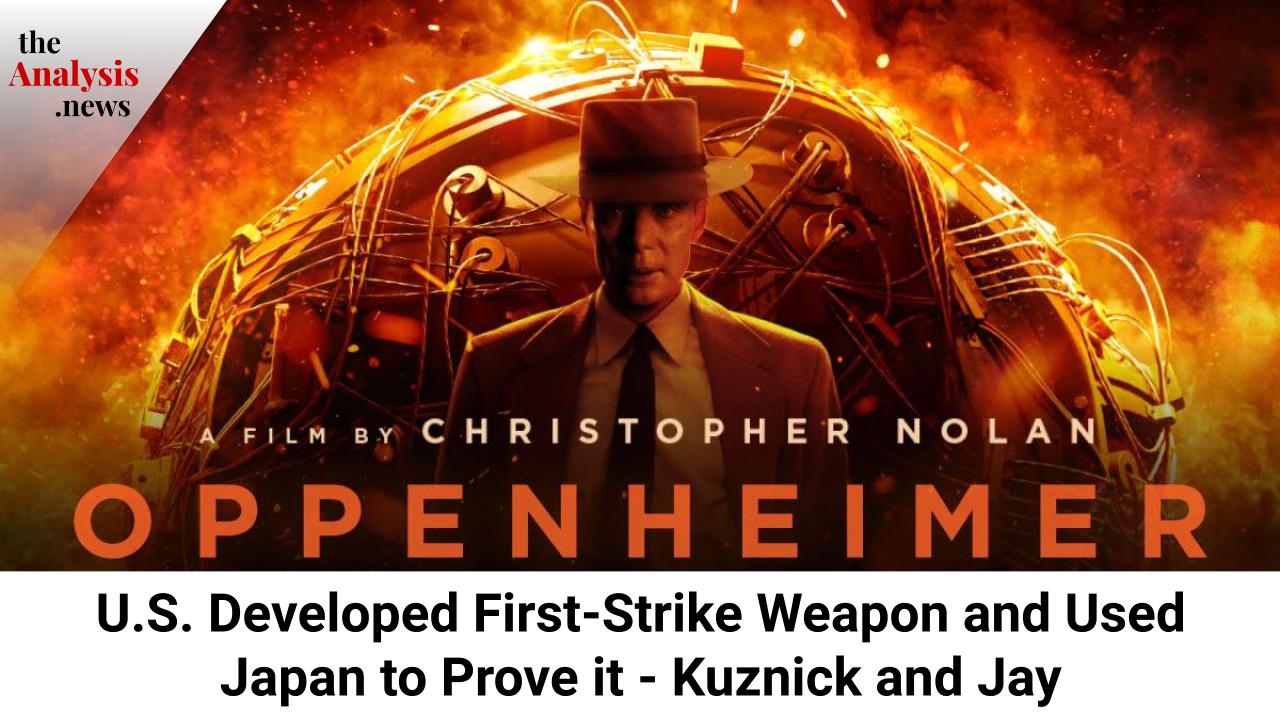
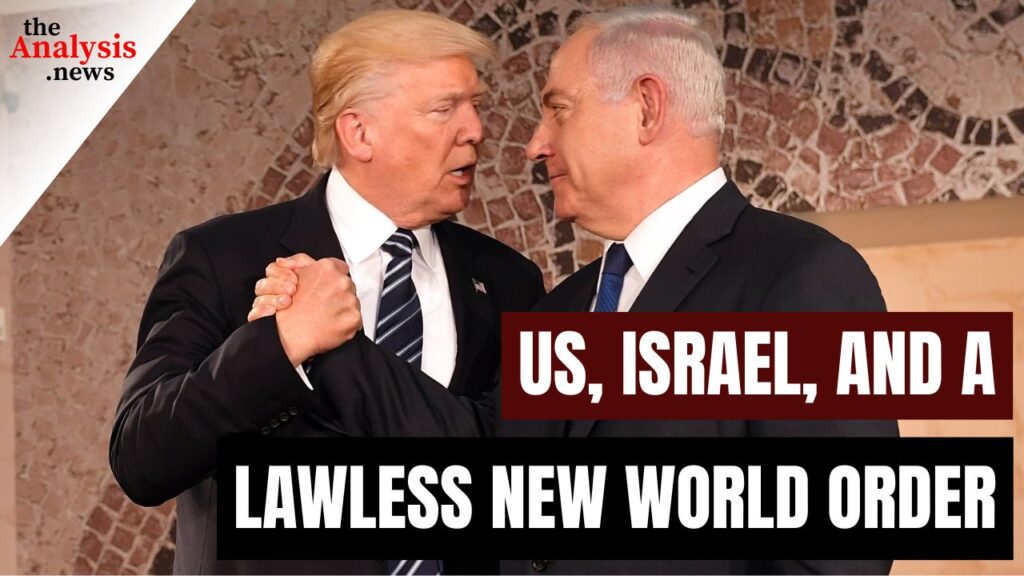
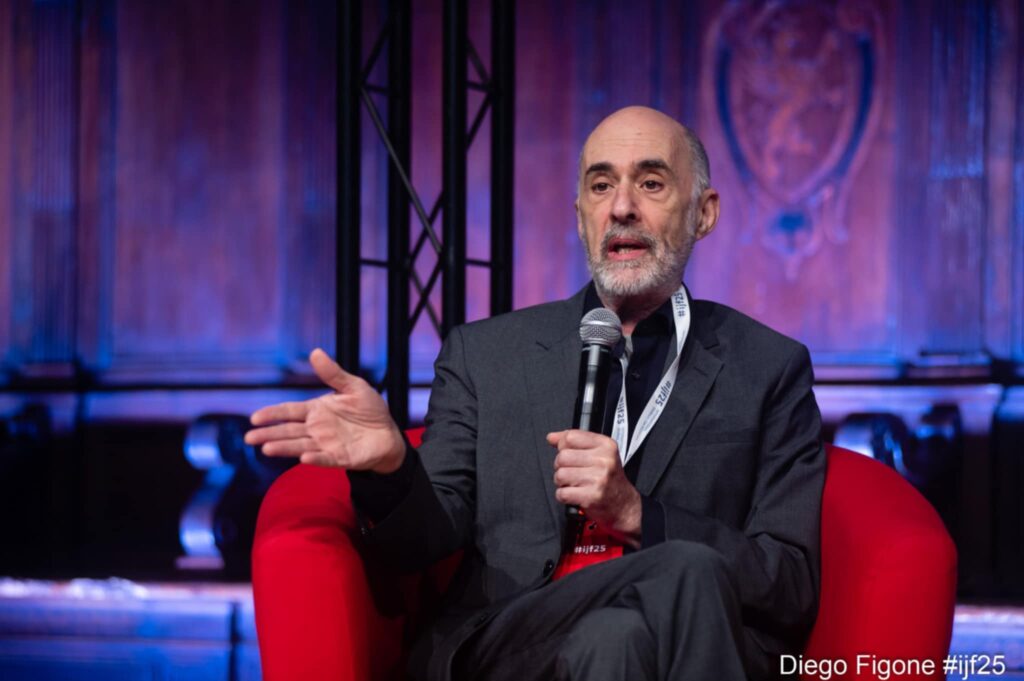
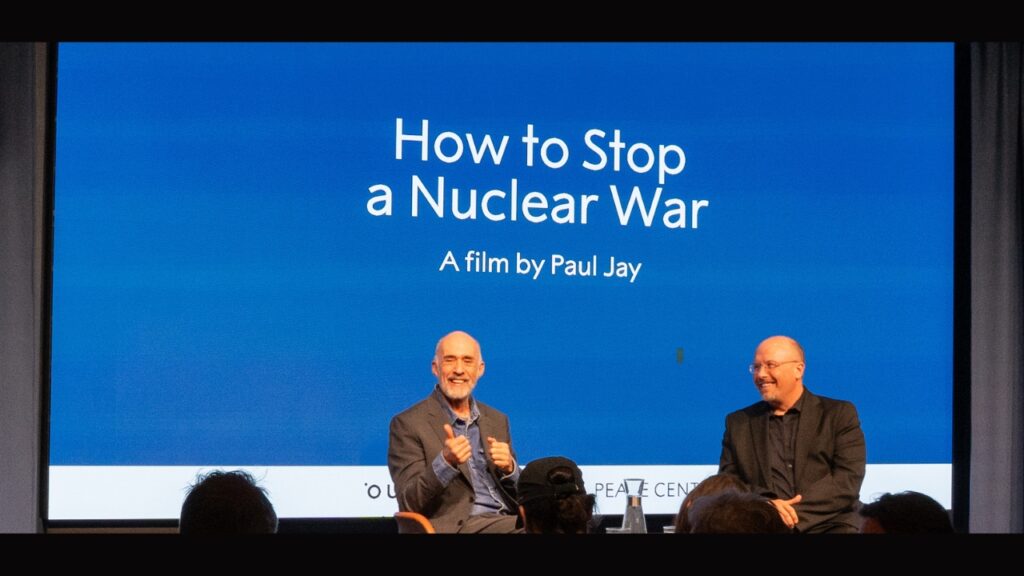




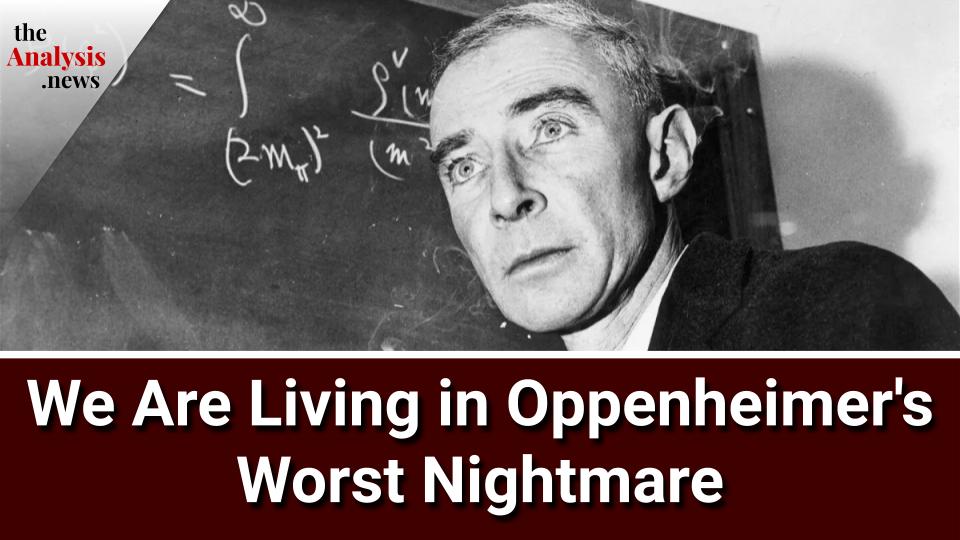
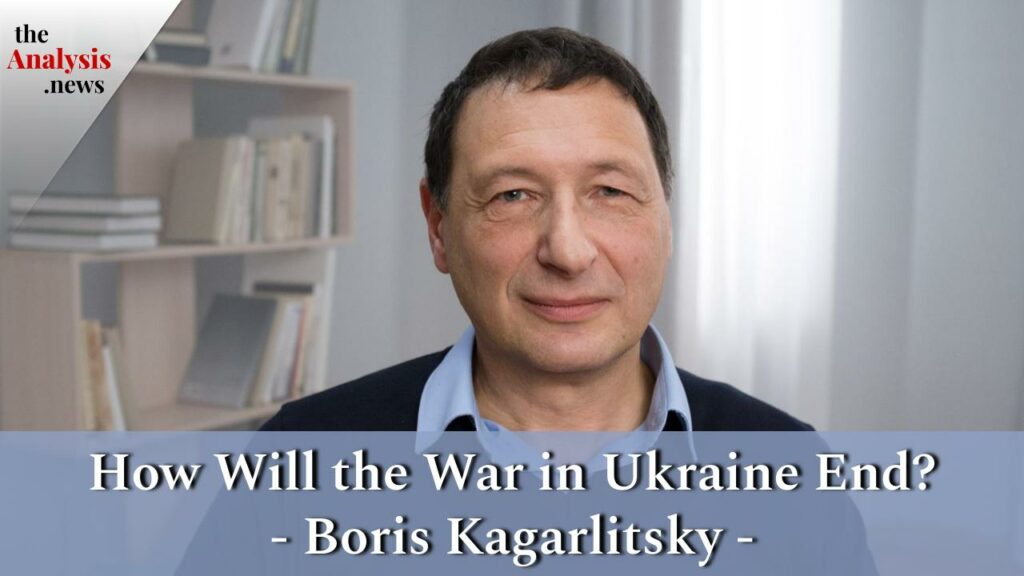



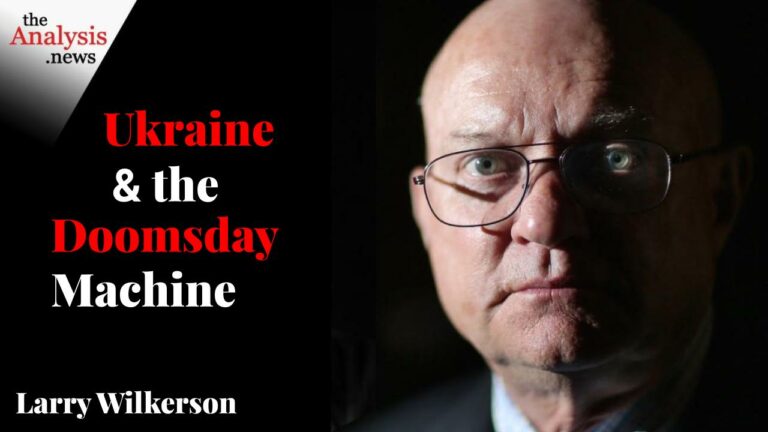
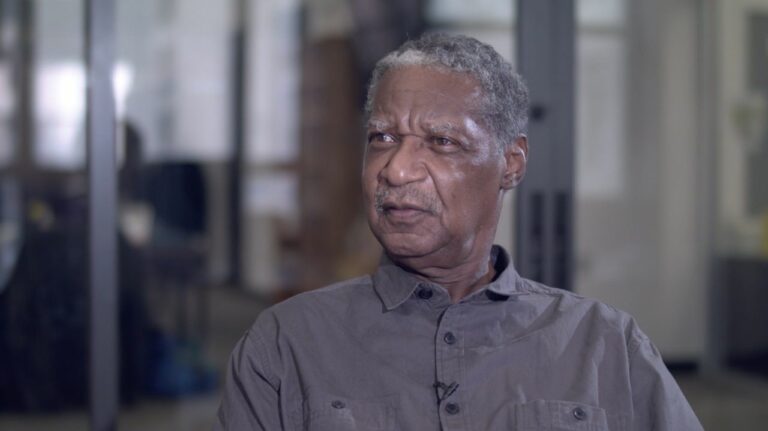

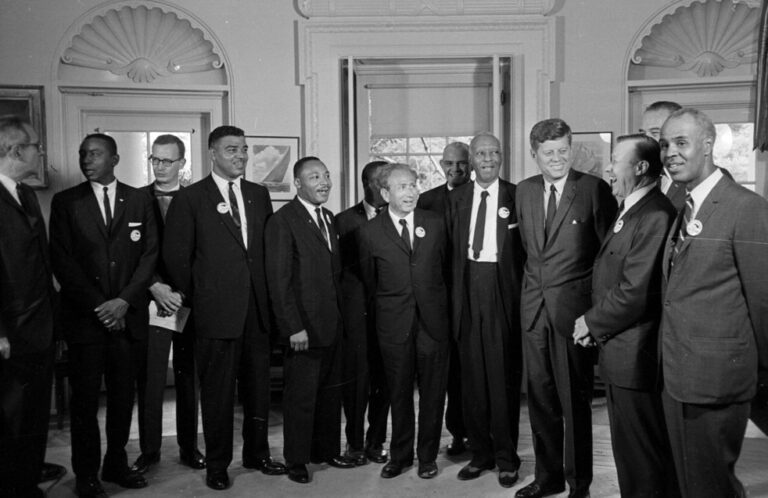
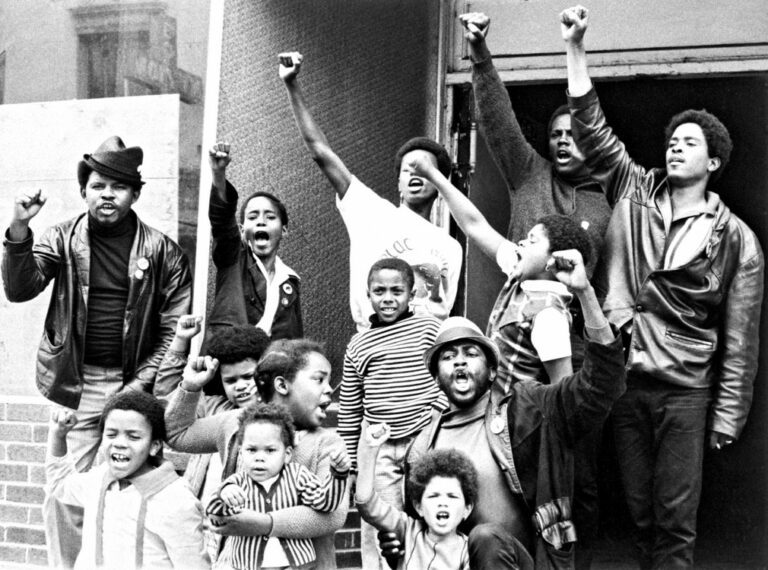
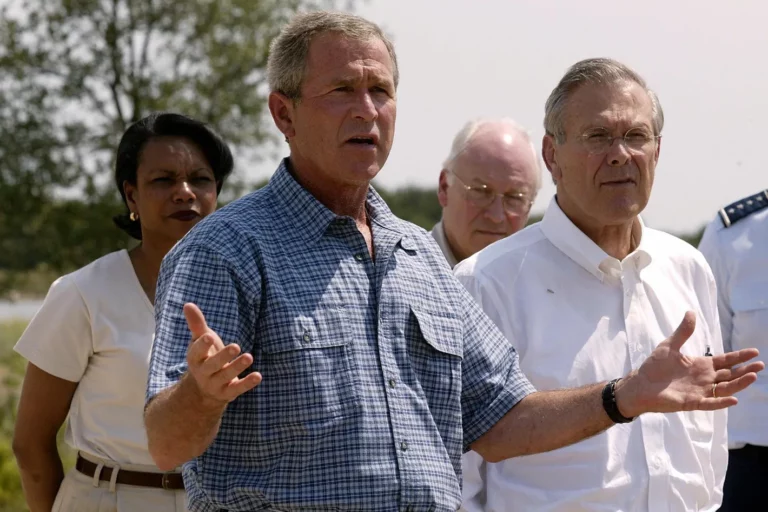
Excelent interview, excelent history lesson
Peter Kuznick: The final word is always given to Oppenheimer or military people who say that if we don’t drop the bomb, we’re going to have to invade, and America is going to lose about a half million boys in an invasion.
Haven’t seen the movie but found this amusing. Even military people were rejecting invasion casualty estimates of 100,000 as being too high. Barton Bernstein goes through the evidence and shows this to be mostly post-war propaganda that Truman told himself to sleep at night – see his 1986 “A Postwar Myth: 500,000 U.S. Lives Saved” here: https://books.google.com/books?id=oQYAAAAAMBAJ&pg=PA40&lpg=PA40&dq#v=onepage&q&f=false
Thank you all at theAnalysis. You are leaders in the mission to free humanity from the nuclear hostage crisis we all face everyday.